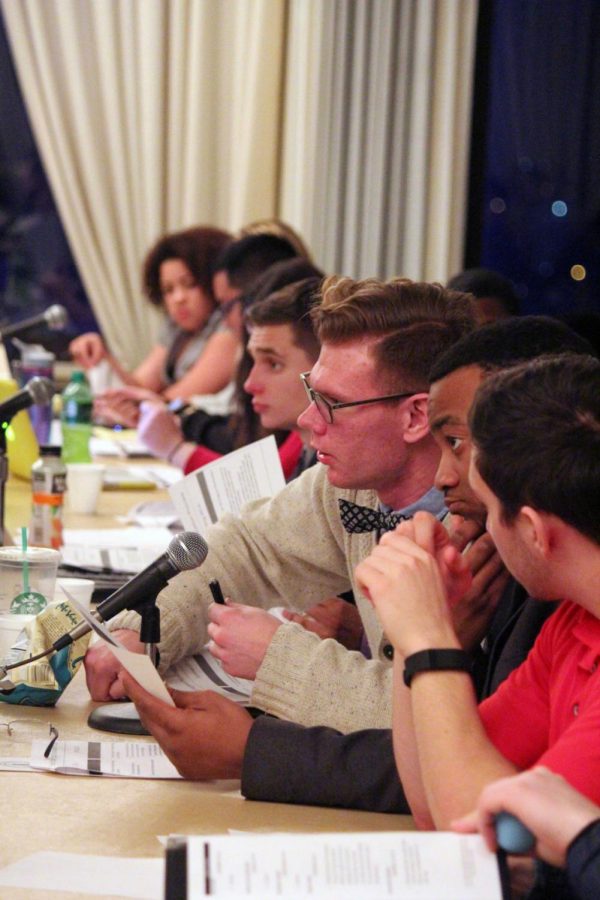Student Association gets more input in NIU’s program prioritization
February 23, 2015
Administrators have agreed to allow for more student participation in program prioritization committees after pushback from the Student Association.
An SA Senate resolution that had its first reading Feb. 15 stated the SA’s “diminishing faith in the shared governance system as it is currently being practiced.” SA Senate Speaker Dillon Domke said this “diminishing faith” was in response to the fact that students will not serve on the task forces determining programs that are to be merged, cut or have their funding status changed as part of the program prioritization process NIU will undergo throughout the spring and fall.
Members of the SA met with the administration following the first reading of the resolution and NIU announced changes to give students more input in the prioritization process. At Sunday’s SA Senate meeting, Domke moved to have the wording of the resolution changed to say the SA thinks NIU is acting in good faith in regard to shared governance.
The motion passed unanimously and the resolution now reads: “Therefore, we the students represented by this body do hereby express our appreciation that we have been included in the program prioritization process, but believe that students should be included in each phase of the prioritization process.”
Student involvement
Students will still not be allowed to serve on the task forces; the rationale for this is the time commitment of six to 10 hours a week would be burdensome and the sensitive information the task forces will deal with could leave students open to intimidation from peers, faculty and staff.
But, the program prioritization coordinating team, which oversees the prioritization process, will now have two student representatives, said Carolinda Douglass, vice provost for Academic Planning and Development. There will be one undergraduate student and one graduate student, and they will be chosen by the SA, Douglass said.
The recommendations made by the task forces will now be subject to student review and input once they are released and NIU will take student trends into account throughout the whole process of program prioritization, Douglass said.
“We’ll also take into account data elements within the prioritization process, such as enrollment and student input, and these will certainly be important in how the programs are prioritized,” Douglass said.
Students will be able to nominate faculty and staff to the task forces through “websites, emails that we’ll send out,” Douglass said. When nominations will take place isn’t yet finalized, Douglass said, but it will be in the next three or four weeks.
NIU has invited the SA to formally participate in the meetings where the criteria for program prioritization will be determined. The committees that will decide the criteria — the Academic Planning Council and the Resource, Space and Budget Committee — have student members. The meetings, on March 16 and 23, respectively, are open.
Student opinion
While there were no abstentions or votes against the changed resolution, some senators expressed concerns and questions about the changes made by NIU.
SA Senator David White said he has concerns about what weight student perspectives would carry in the actual process of prioritization. Douglass said that would depend on what the issue was. Not all criteria will be weighted equally under the current program prioritization plan. The exact weighting system is not yet determined, and it will be decided with the actual criteria.
Domke said he was satisfied overall with the changes NIU has made. While the SA would like to see students represented at all levels of the prioritization process, the reality of it is not possible, he said.
“The ultimate one situation is to be part of every single part of program prioritization. That would mean having someone on the task force,” Domke said. “But, we are very happy with what we have right now.”
Instead of pushing for a student representative on the task force, Domke said the SA will work to develop a process through which students can effectively give input on the recommendations made by the task force.







